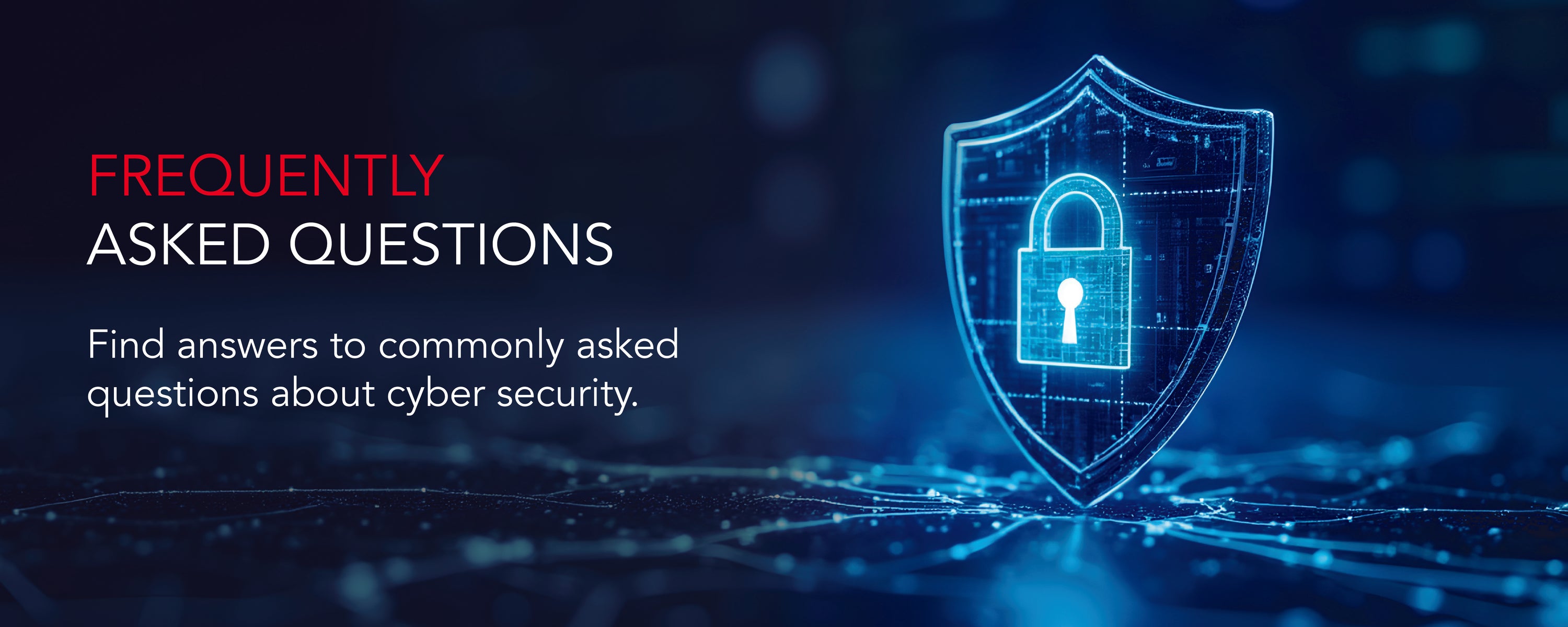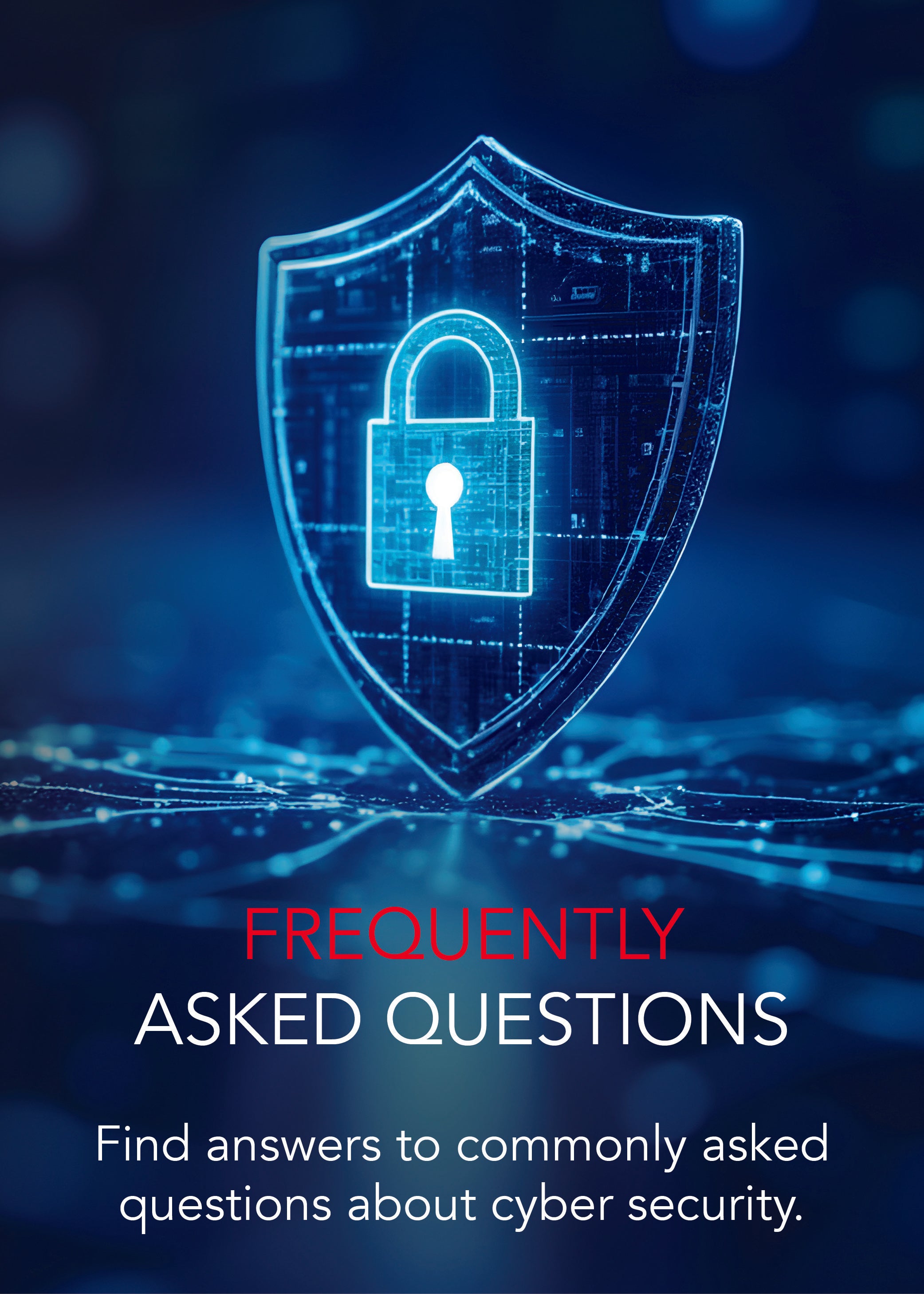Frequently Asked Questions
Got questions? Our Frequently Asked Questions page is designed to give you quick, clear answers about Harvey Norman Technology for Business’s services, policies, and processes. Whether you're exploring our offerings for the first time or looking for specific details, this page helps you make informed decisions with confidence.
Cyber Security
Cybersecurity refers to the practice of protecting digital systems, networks, and programs from attacks. These attacks are usually aimed at accessing, changing, or destroying sensitive information, extorting money from users, or interrupting normal business processes
Small businesses often have fewer resources and less protection, making them attractive targets for cyber criminals. Protecting sensitive data, customer information, and business operations is crucial to avoid financial loss and reputational damage.
The Essential Eight is a cyber security risk mitigation framework developed by the Australian Cyber Security Centre (a departnmet of the Federal Government). The Framework is used by the courts when determining if businesses have made a reasonable effort to protect their sensitive data, such as customer records.
Implementing strong security measures such as firewalls, antivirus software, and regular software updates, and educating employees about cybersecurity best practices. Using strong, unique passwords can also help protect your business.
Common threats include phishing attacks, ransomware, malware, and data breaches. These can lead to stolen personal information including medical records, financial information, intellectual property, financial loss, and disruption of business operations.
Consumer-level security is designed for individuals and households. It typically includes basic protections like antivirus software, firewalls, and safe browsing tools to guard personal devices and data.
Commercial-grade cyber security is built for businesses of all sizes, whether you are a sole trader or have a team of 300 employees. It goes beyond basic protection by implementing multi-layered security controls, as recommended by the Australian Cyber Security Centre’s Essential Eight Risk Mitigation Strategies. These include measures like application control, patch management, multi-factor authentication, and regular backups.
This approach helps businesses protect sensitive data, secure multiple devices and users, and meet compliance obligations under Australian privacy and cyber security laws. In today’s threat landscape, even small businesses need commercial-grade protection to defend against increasingly sophisticated cyber threats.
Consumer-grade cyber security is designed for personal use and typically offers basic protection like antivirus software and firewalls. While that might be enough for home devices, it falls short when it comes to protecting business operations.
Every business manages sensitive data, from customer details and financial information, to medical records and operational data, and protecting it isn't optional. Strong safeguards aren't just best practice, they are essential for trust, continuity, and to support compliance.
Commercial-grade cyber security provides multi-layered protection, that follows the Australian Cyber Security Centre’s Essential Eight Risk Mitigation Strategies. These include:
- Application control
- Patch management
- Multi-factor authentication
- Regular backups; and more
This framework helps businesses defend against ransomware, data breaches, and other cyber threats, while also supporting compliance with Australian privacy and cyber security laws.
It’s a common myth that using cloud-based platforms means your data is automatically secure. While cloud providers do offer strong security measures, your devices are still the front door to your business and they’re often the weakest link.
Device management ensures every device accessing your systems is secure through updates, access controls, and multi-factor authentication. It’s a key part of the Essential Eight cyber security risk mitigation framework, which recommends a multi-layered approach to protect your business from threats like ransomware and data breaches.
We implement password management tools that securely store and generate strong passwords, enforce regular password updates, and integrate with MFA for added protection.
Back Up and Recovery
Backup and recovery means having a copy of your important business data stored safely, so you can get it back if something goes wrong. Whether it’s a system crash, cyberattack, or accidental deletion, it helps you restore what’s lost and keep your business running
We provide automated cloud and local backup systems to protect your business data. These solutions ensure your files are regularly saved and easily recoverable in case of hardware failure, cyberattack, or accidental deletion.
In the event of data loss, our recovery services can restore your systems quickly using secure backups. Harvey Norman Technology for Business also offers disaster recovery planning to minimise downtime and disruption.
Yes. We work with our customers to develop a business continuity strategy that includes secure backups, recovery protocols, and remote access solutions to keep your operations running during unexpected events.
Compliance & Obligations
We support business owners, including sole traders, clinic and practice owners by:
- Implementing secure systems and backups
- Monitoring for unusual activity
- Helping you meet your legal and compliance standards
- Providing guidance on cyber incident response and reporting
Regulators expect businesses to take reasonable steps to secure sensitive data. This includes:
- Using strong passwords and MFA
- Keeping software up to date
- Following the Essential Eight mitigation strategies
- Securely storing personal, medical, and financial information
Failure to comply can result in:
- Regulatory investigation
- Fines, penalties, and legal action
- Breach of contract claims
- Damage to your reputation and customer trust
If your business experiences a data breach involving personal information (e.g. customer names, medical records, payment details), you may be legally required to report it under the Notifiable Data Breaches (NDB) scheme. This includes:
- Informing affected individuals
- Reporting the breach to the Office of the Australian Information Commissioner (OAIC)
- Taking steps to contain and remediate the breach
Cloud & Cyber Security
Cloud providers typically offer strong platform-level security but that doesn’t cover everything. You’re still responsible for securing how your business accesses and uses the cloud, including device security, user access, and data handling. That’s why the Essential Eight recommends a multi-layered approach because even the most secure cloud platform can be compromised if your devices or credentials are exposed.
General
A TSSP is a cyber security partner that delivers managed security services designed to meet the needs of Australian businesses. They help implement and maintain frameworks like the Essential Eight, ensuring multi-layered protection across devices, networks, and cloud environments. TSSPs are especially valuable for small to medium businesses that need enterprise-grade security without the overhead of managing it in-house.
A reputable Technology Security and Services Provider (TSSP) will offer transparent, standards-based services aligned with the Essential Eight cyber security framework. Look for providers who offer multi-layered protection, 24/7 monitoring, clear service agreements, and experience working with businesses like yours. They should also help you understand how their services support your compliance and legal obligations.
No cyber security solution can offer a 100% guarantee against cyber threats. However, working with a trusted Technology Security and Services Provider (TSSP) like Harvey Norman Technology for Business helps you minimise the risk. Through multi-layered protection, 24/7 monitoring, and alignment with the Essential Eight, we help strengthen your defences and improve your ability to detect, respond to, and recover from cyber incidents.


